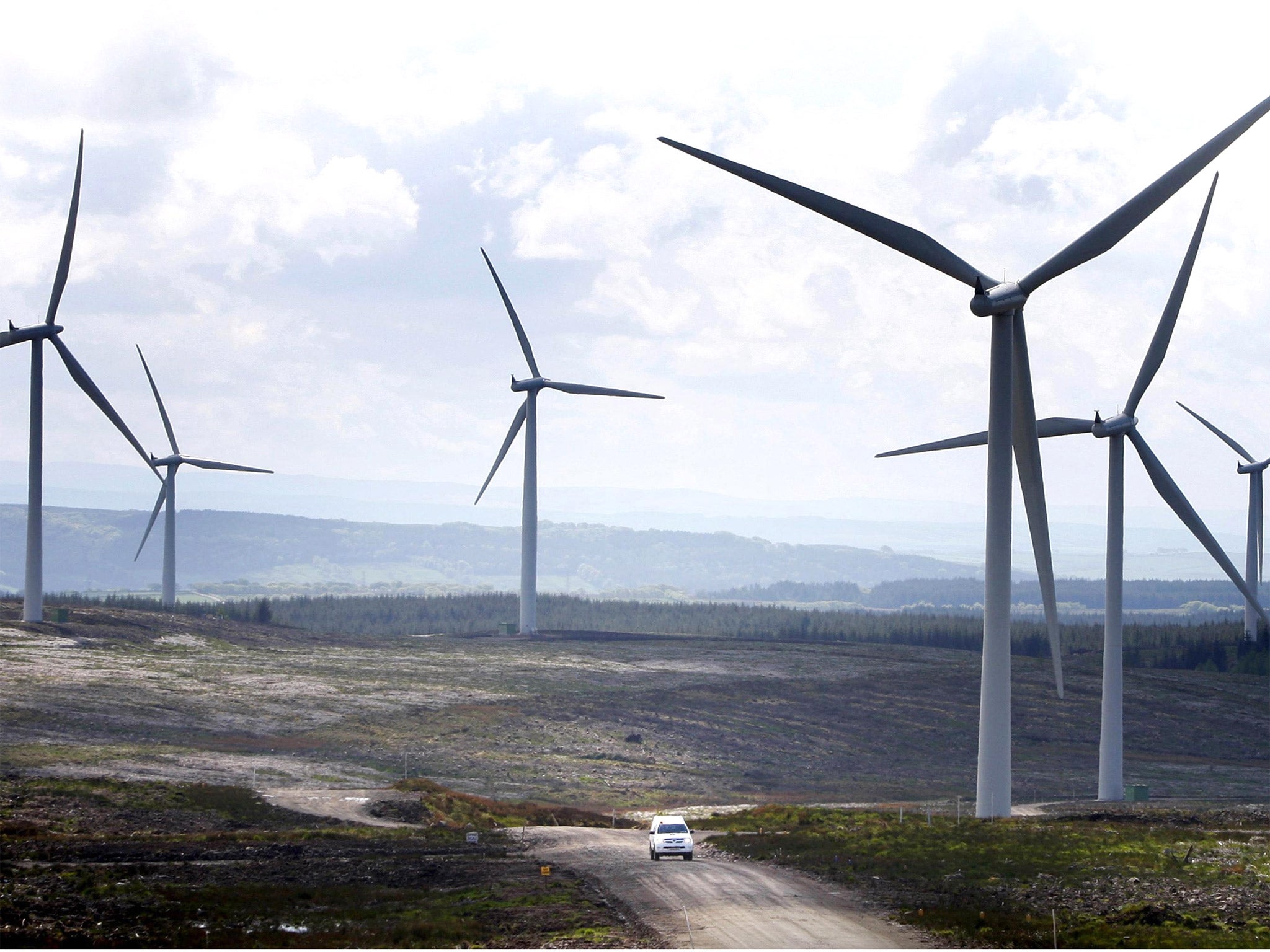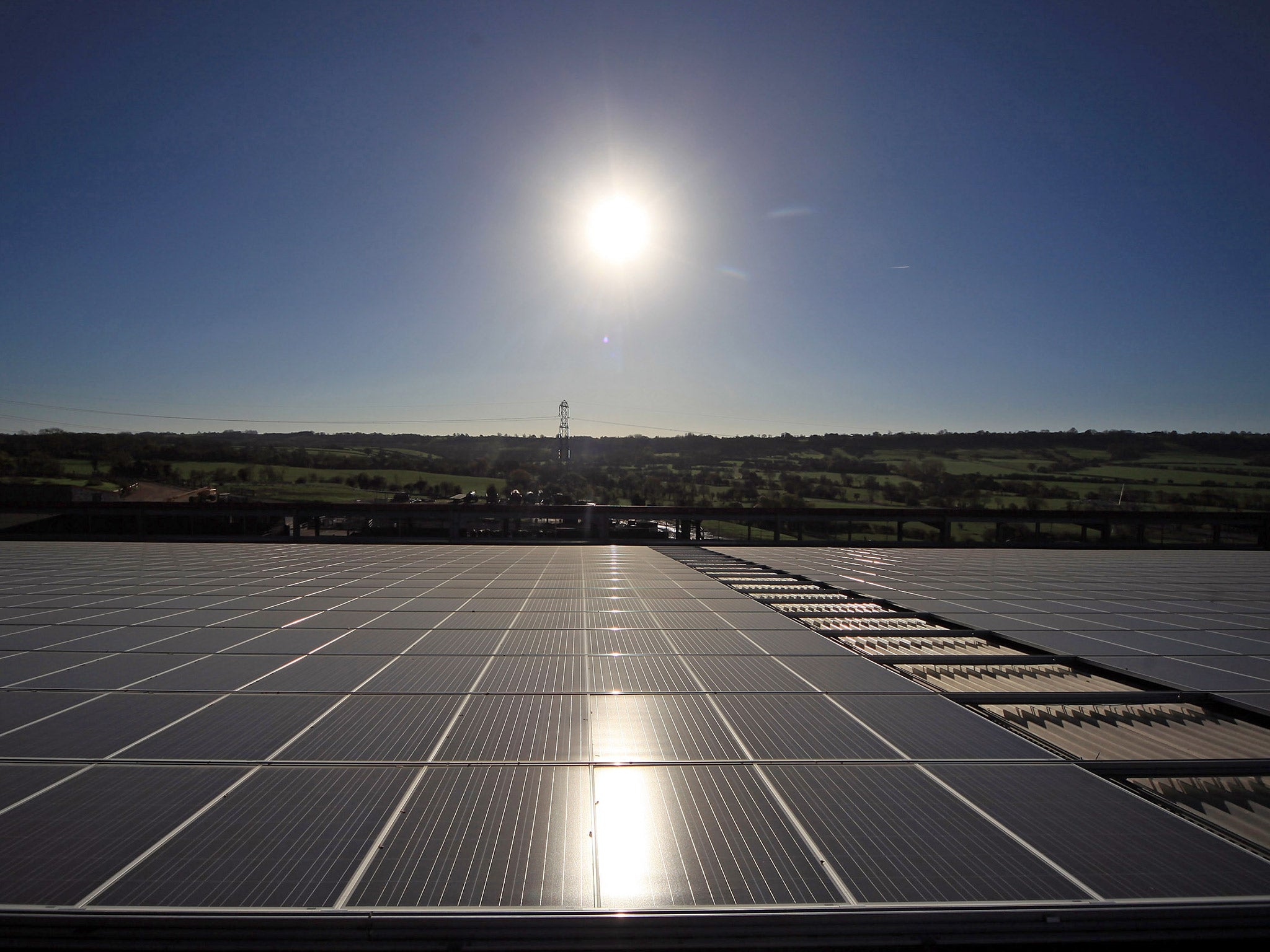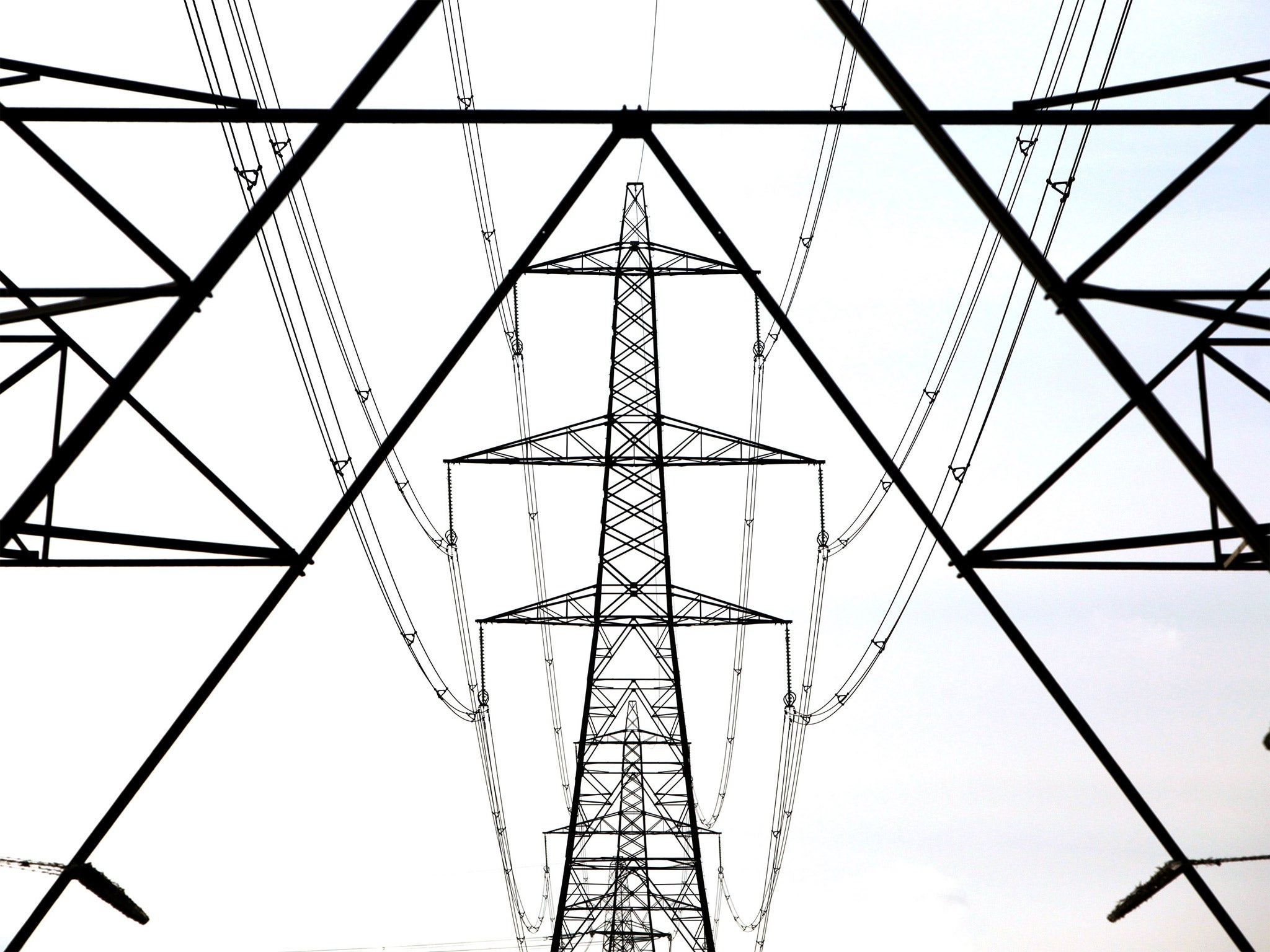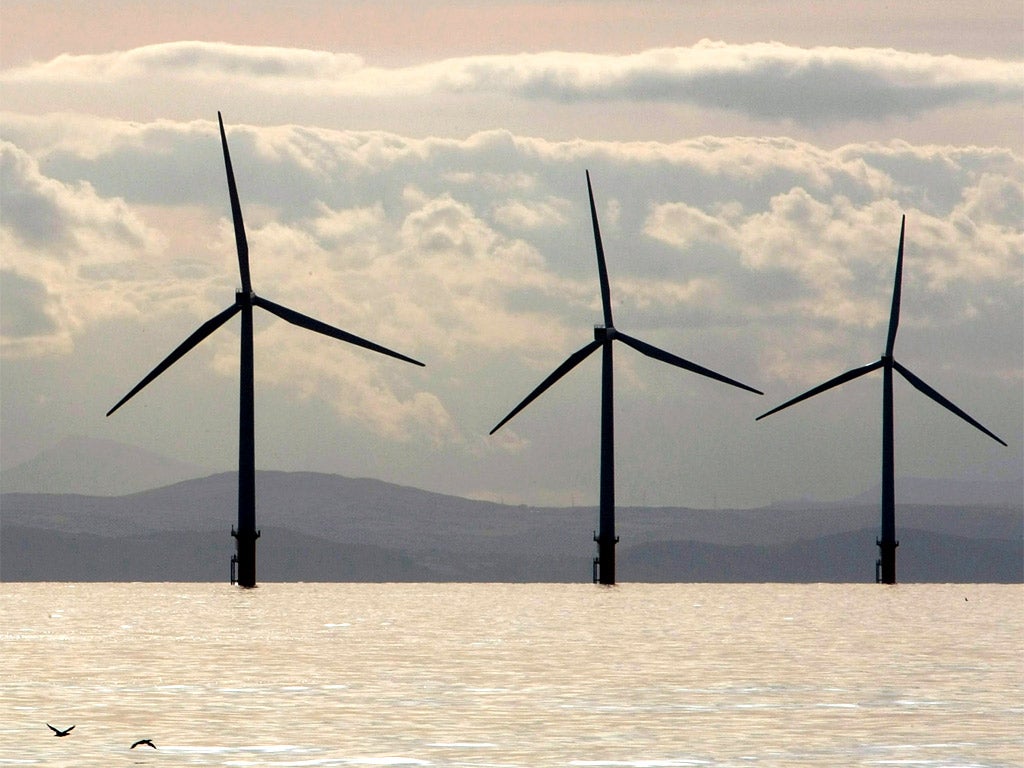Government faces multi-billion pound black hole in budget to pay for clean energy supplies - which could mean your electricity bill rises
Exclusive: Department of Energy and Climate Change has already overspent its budget to support renewable energy projects over the next five years

Your support helps us to tell the story
From reproductive rights to climate change to Big Tech, The Independent is on the ground when the story is developing. Whether it's investigating the financials of Elon Musk's pro-Trump PAC or producing our latest documentary, 'The A Word', which shines a light on the American women fighting for reproductive rights, we know how important it is to parse out the facts from the messaging.
At such a critical moment in US history, we need reporters on the ground. Your donation allows us to keep sending journalists to speak to both sides of the story.
The Independent is trusted by Americans across the entire political spectrum. And unlike many other quality news outlets, we choose not to lock Americans out of our reporting and analysis with paywalls. We believe quality journalism should be available to everyone, paid for by those who can afford it.
Your support makes all the difference.The Government is facing a multi-billion pound black hole in its budget to pay for new clean energy supplies, which could result in rising household electricity bills unless there is a dramatic decline in investment in renewable technologies.
Senior Whitehall sources have told The Independent that the Department of Energy and Climate Change has already overspent its budget by £1.5bn to support renewable energy projects over the next five years.
But ministers are being warned that unless they increase the budget still further and bring more renewable energy projects online, the UK will have no hope of hitting its legally binding commitments to reduce greenhouse gas emissions in the mid-2020s.
Under the Government’s current projections, the total additional costs added to an average household’s electricity bill to pay for the green schemes are already due to rise from £89-a-year to £188 by 2020. But if ministers continue to pursue official targets with the necessary future investment, this figure will rise significantly.
A new analysis by the think-tank Policy Exchange suggests that the current overspend on renewables subsidies alone could add an additional £20, pushing energy policy costs for the average household to nearly £210 per year.

“Sorting this out is the number one priority for the department,” said one Government source.
“But the truth is there is no easy solution to any of this. It is ‘answers on a postcard’ time.” The problem has arisen because of failings in the framework which the Coalition Government set up to encourage small and large-scale providers to generate renewable energy.
Under the scheme, everyone – from a household who decided to put a solar panel on the roof to the developer of an offshore wind farm – was guaranteed a premium on top of the market price for electricity, to help encourage the development of renewables.
The subsidies are paid for by a “levy” on household energy bills, which was meant to be capped to ensure that bills did not rise too fast.
But due to a decline in the wholesale price of oil and gas, as well as higher than expected installation of home solar panels, this budget of £7.6bn per year has already been busted by more than 20 per cent.
Figures slipped out by the Office of Budget Responsibility at the time of the Budget showed total spending on renewables subsidies such as the Feed in Tariff, Renewables Obligation and Contract for Difference, could increase to £11.5bn in nominal terms by 2020/21. This not only means that the budget is fully allocated, but that the “headroom” which the Treasury created to allow for any overspend has already been spent as well.
Unless more money can be found, key projects such as carbon capture and storage, as well as the future of new offshore wind farms, could be placed in jeopardy.
Ministers are understood to be concerned that, as well as failing to hit the UK’s carbon reduction target if such projects are scrapped, the UK’s nascent renewables industry will be put into deep freeze with a knock-on effect on jobs and investment.
However, they are also aware that any attempt to pay for the addition investment by increasing gas and electricity bills is politically toxic.
“Increasing bills beyond what they are due to rise by anyway is a red line for us,” said a senior Conservative source. We have to find another way around this because we can’t keep on spending money that isn’t there.”

The report by Policy Exchange, published on 16 July, says that the average household energy bill has risen by £240 over the past five years, with £120 of this due to increases in policy and network costs.
It estimates that, as a result of the current overspend that policy, costs alone could increase from £89 per household now to over £200 per year by 2020. The DECC claims that this rise will be offset by improvements in energy efficiency, but this has been challenged by other Government experts and consumer groups.
“Household energy bills have soared in recent years,” said Richard Howard, the author of the report. “Government should take its decarbonisation commitments extremely seriously but must also recognise that what consumers really want is affordable energy.
“That is why we are proposing that there should be stronger consumer oversight over policy decisions, and that government should look at ways to meet energy and climate objectives at lower cost to consumers.”

He added: “Our analysis shows that DECC is likely to break through the agreed spending cap on renewables subsidies. This will add additional costs on to consumer bills, squeezing household budgets even further.
“Government urgently needs to take action to stem the rise in policy costs. Little can be done to change the existing commitment made, but Government must think more seriously about the affordability of energy policies going forward.”
Joss Garman, Associate director for energy at the IPPR think-tank, added: “Ministers need to rethink the funding model for clean energy and focus on the cheapest green technologies like solar power. Just hiking up green taxes on bills is not fair or sustainable ways to pay for low carbon transition.”
A DECC source said that the OBR figures were merely “projections” that were kept under constant review.
“This allows us to put in measures to protect bill payers,” they said.
A spokesman added: “Reducing energy bills for hard-working British families and businesses is this government’s priority.
“We’ve already announced reforms to remove subsidies for onshore wind and that work to make sure bill payers are getting the best possible deal is going to continue.”
When the levy breaks: renewables subsidies
In the last parliament the Government introduced a “levy control framework” that was supposed to cap the amount of money that could be spent on energy-efficiency measures and new renewable projects – paid for out of consumer bills.
But over the last few years the Government has had limited control of this spending as a result of its own policies to promote green energy.
For example, many more people than expected have benefited from subsidies for home solar power, while onshore wind farm development has also come on apace.
This has led to the slightly farcical situation where on occasions too much electricity has been generated and suppliers have been paid to produce energy for the grid.
A decline in the wholesale price of oil and gas – on which some subsidies are based – has exacerbated the problem, meaning the £7.6bn annual budget has already been allocated up until 2020.
Join our commenting forum
Join thought-provoking conversations, follow other Independent readers and see their replies
Comments